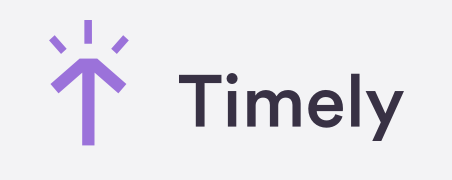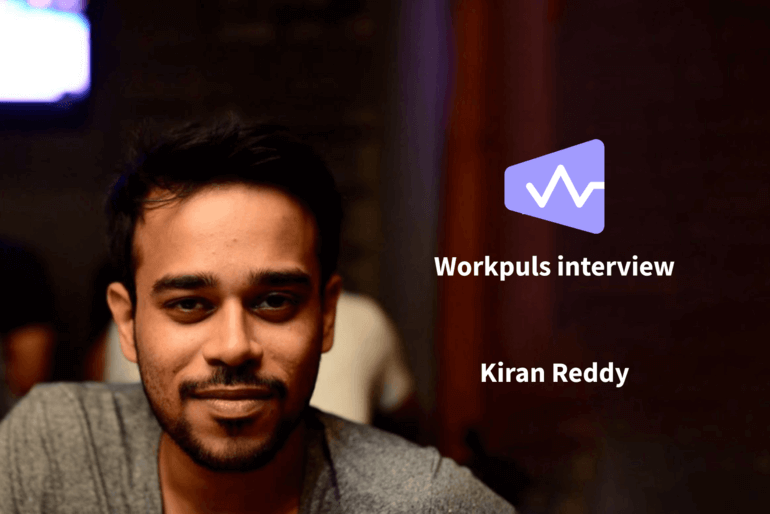Insightful Interviews: Kiran Reddy
Meet the co-founder of Risevertise Media.
Speak with a Productivity Expert
Give us 30 minutes and we’ll show you how we can help you achieve better results.
Insightful: Tell us something about yourself.
Kiran: I come from Mumbai, where I was born and brought up. I got my education in law and graduated in 2013. After which, I took a short sabbatical when I explored some projects, through which I developed an interest towards marketing, essentially in business strategy. Now, 3 years later, I am sitting in my own startup with a team of 13 people.
Insightful: Who are the other co-founders?
Kiran: My two business partners are Adarsh Munjal and Snehsha Tank. Adarsh has the main chair in our partnership and is also a prominent food blogger while also being in the marketing and advertising industry for 10 years. Snehsha is the managing partner who handles the floor and leads her team of directors of copy, web development and everything related to design UI and UX.
Insightful: Can you explain what makes your business culture and managing style special?
Kiran: Despite all the advice I got from many business people, I have a lot of friends working with me. The same applies to my business partners. We have a very comfortable relationship with our team, both personally and professionally. I admit, professional relationships are more challenging to maintain when friendships are at stake, especially in the conflict prone creative domain. We have an open conversation policy – it is understandable that sometimes you might hurt another person’s feelings, but you have to acknowledge the fact that there are feelings involved. We believe you should be able to speak your opinion, whether you are an intern, a manager or a director, as long as you have a valid point and constructive criticism. We do not like to say that people work for us and we have a more inclusive- intimate approach of working with us. In the growth of every employee lies the growth of the organization and we are trying to have people develop that mindset. What’s more, we have a flexible work time as well. People come in between 11 am and 1 pm and stay until 8 pm or 9 pm. We have a 40 hour week schedule, but sometimes people work 50 or 30 hours, depending on the work we have.
Insightful: How do you think this differs from an average organization in India?
Kiran: We’ve seen how a bunch of SMEs in India operate and it’s primarily a dictatorship. Employees accept everything the boss says, the boss is always right and there is no democracy. We take a different approach and we believe that the client is always right. The client may be ill informed, and we take it as our duty to communicate and facilitate the understanding of the service being provided. Also, there is our flexibility that’s unusual in India. It is known that Indians are compassionate hard workers. We channel the emotions of our workforce, invoking passion for the cause that we have. This is something only a boss can maintain by building good personal rapport. With this culture, I know that if any of the partners are unavailable to answer their phones, respond to emails or go to meetings, the team is versatile and adaptive enough to take care of that. Not everybody in India can say this with confidence or comfort and that’s why we are a bit different.
Insightful: It is known that people in India tend to change their jobs often. Why do you think this happens and have you ever faced this kind of problem in your company?
Kiran: I think the main reason for changing jobs often is dictatorship and lack of appreciation from the boss. People need to be appreciated, the same way as in love relationships. Your partner might be a great person, but if you are not appreciated, you will find attention elsewhere. At Risevertise, we hope that every intern we’ve had or person that has worked for us would come back, given an opportunity.
In India, managers fear they might groom someone for years and when talent gets a better opportunity they might leave. Lack of interesting work and the freedom to get creative in the way they work is an issue. Something we encourage and something that is lacking in many companies across. The creative freedom brings out creative results which is what the clients want and are blown away by. Micromanaging is not the solution, effective communication, initiative and query resolution is a much better process. However, loyalty and ownership come to play too. We share credit to the people for their efforts to client projects and are also open to giving ESOPs or equity in the brands we are incubating internally.
Insightful: How does your regular day look like? What do you usually do and what do you believe improves general productivity?
Kiran: There is a lot of chaos in the startup scenario. There are 3 am conversations with partners and 7 am breakfast meetings with clients which is why I can’t say what my regular routine looks like. There are some events and obligations I know I won’t be able to escape so I try to put them in my afternoon schedule. Between noon and 6 pm is most productive time, so any sorts of conversations, brainstorming, etc. happen in the afternoon. Thinking and errands of the day are either evening or early in the morning. My work hours are between 9:30 am to 10 pm, but it also happens that I have to work on something from home. In terms of general productivity, we use Google apps to a great extent and we create task lists so that everybody knows what everyone else is doing. Along with that we created a project tracker as well, to see who is responsible for what. With good delegation, people can easily get guidance, if they need it.
Insightful: Are you into any sort of exercise or meditation, or maybe practice some art like reading or drawing, that you think helps you keep your focus?
Kiran: I do meditate often, style depends on the part of day. If it’s in the morning it usually goes with lots of freshness and energization, deep breathing and mental cleansing, which helps me concentrate on things that will happen during the day and I prepare how I want to guide certain communications. Along with this, I read a lot, generally in the evening after dinner, but sometimes I take an hour’s break during the day in the office to just cleanse my head. Some sort of crossword puzzle or any sort of mental games keeps my brain sharp, and I also enjoy jigsaws or spot-the-difference and other similar activities.
Insightful: What advice would you give to anyone who is managing a company that is just starting out?
Kiran: The most important aspect is to have an open mind. Learning from experience makes a person wiser, so stereotyping clients, employees or partners is a big danger for anyone in any industry. Never assume, it’s always better to ask and clarify. Everything can be resolved if you come with an open mind and sit to discuss, not argue. Ego is the first casualty, it’s the first thing you have to give up when you are starting a company. It’s very important to balance it out with the interest of a partnership, which is always above personal ego. You bring in your self-esteem, confidence, morale, principles, values… Everything is happening together and multiple decisions have to be made, so you need to have clarity in direction and thought. When I have some personal problems with my partners and something important to talk about business, we always first discuss business. This is something you can learn, it’s not inherent.
Also, we can be present only at one place at one time and multitasking is a myth. It is actually a bunch of monotasks happening one after the other. I don’t believe it is possible to do two different things at the ‘same’ time. I learned that from experience. Initially I wanted to do all of the things by myself and I ended up burning out, wasting time, resources and annoying people. So have an open mind, delegate, guide and trust your team.
Kiran was an extremely interesting interviewee. We couldn’t fit everything he said into one blog post, but we made sure that you got some useful tips. Maintaining friendly-professional relationships is very helpful and relaxing for everyone in the business. Don’t forget to take good care of yourself – meditate, exercise and avoid multitasking to keep your mind fresh and productive on the long run. More interviews coming soon.
.svg)





























.png)


.png)



